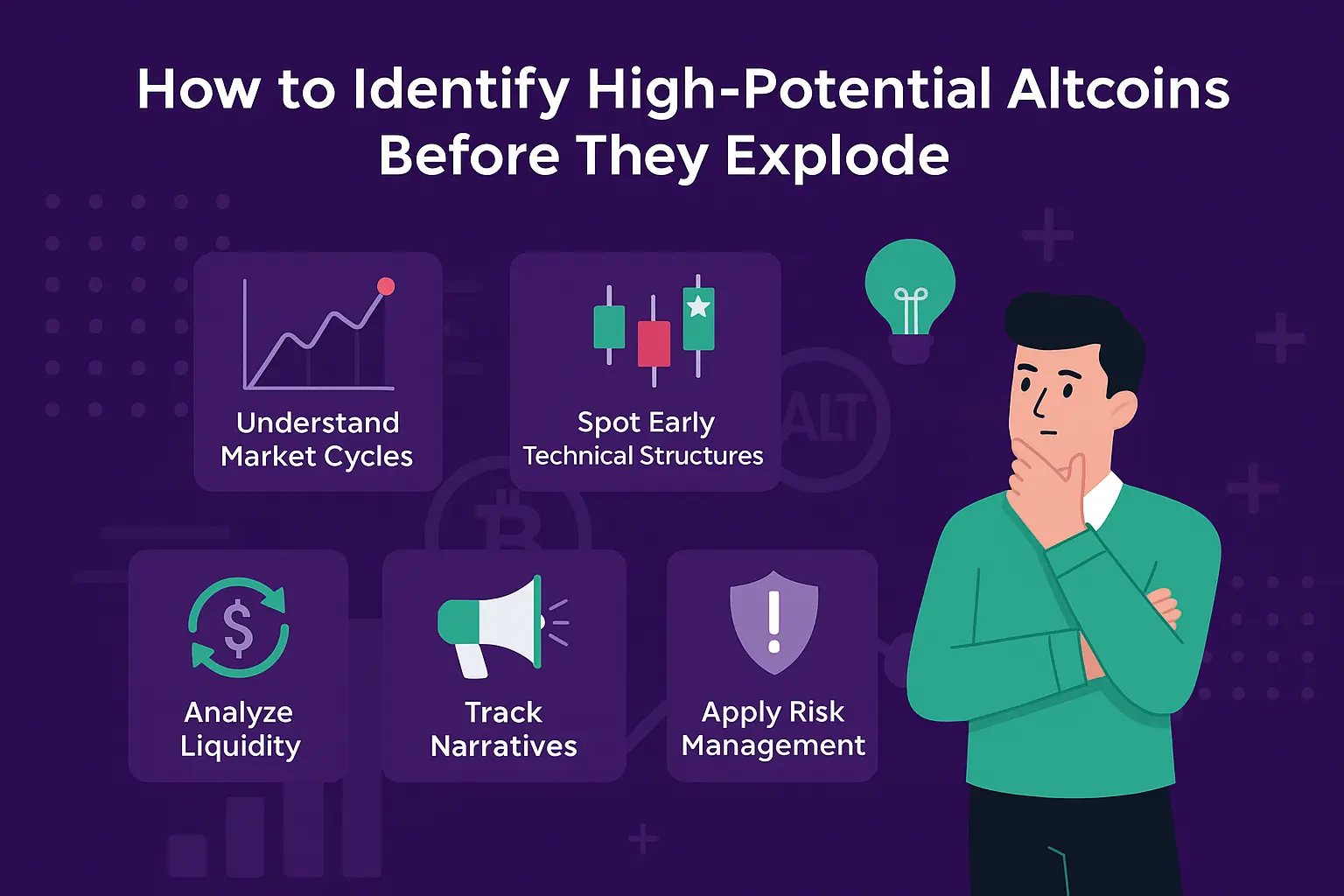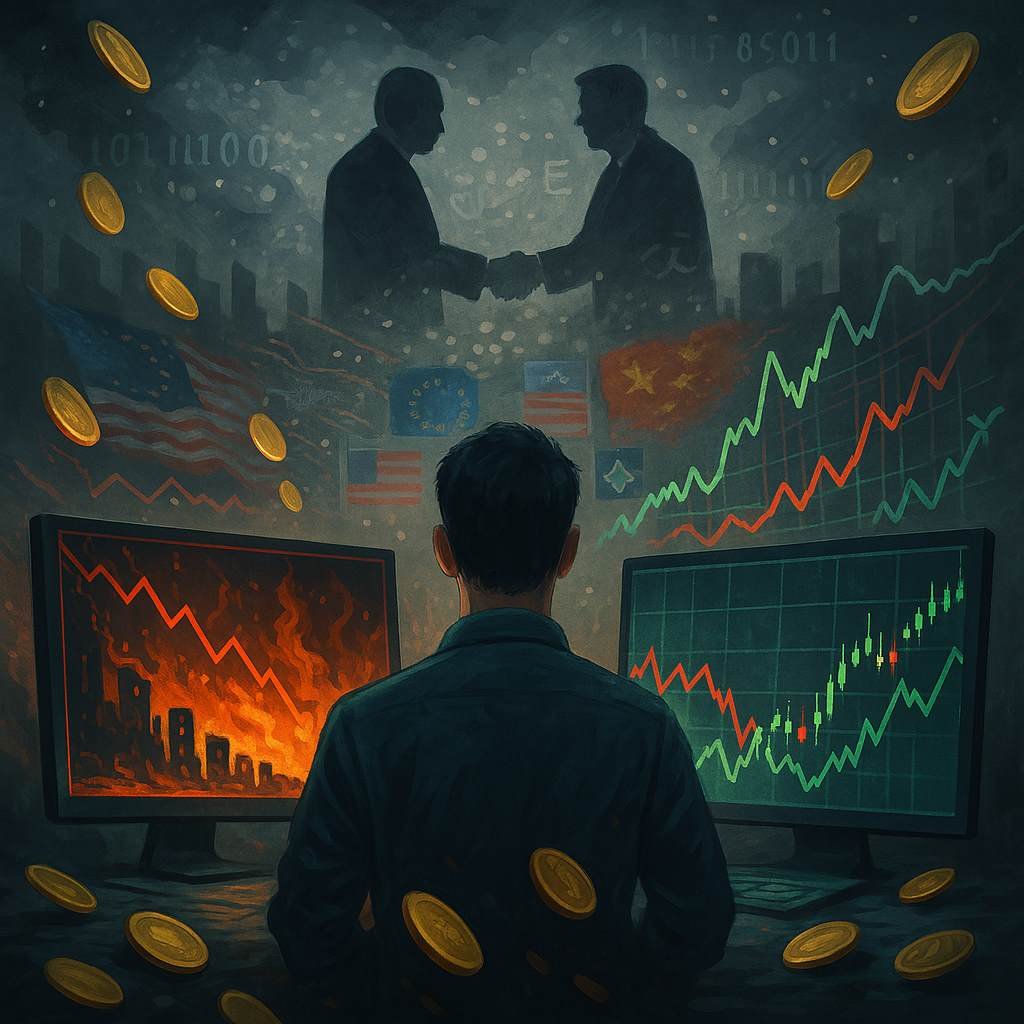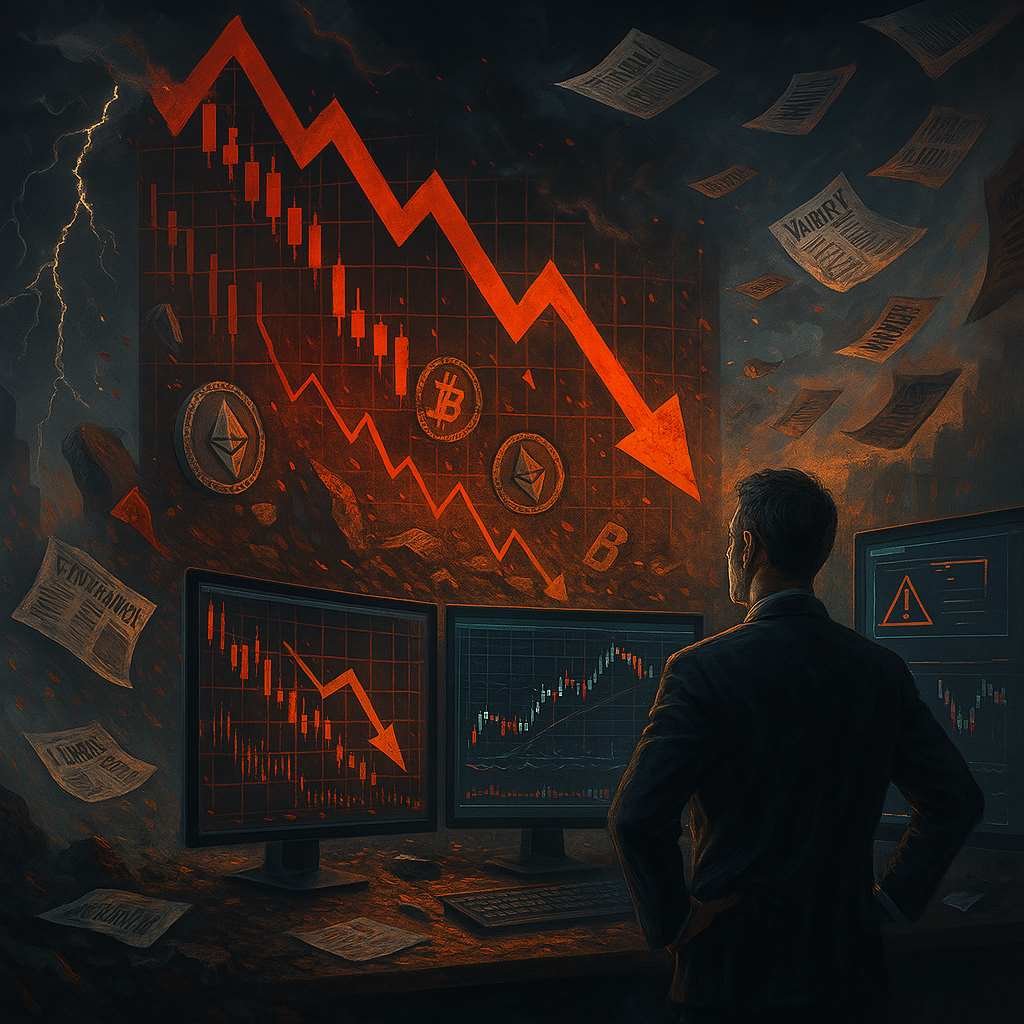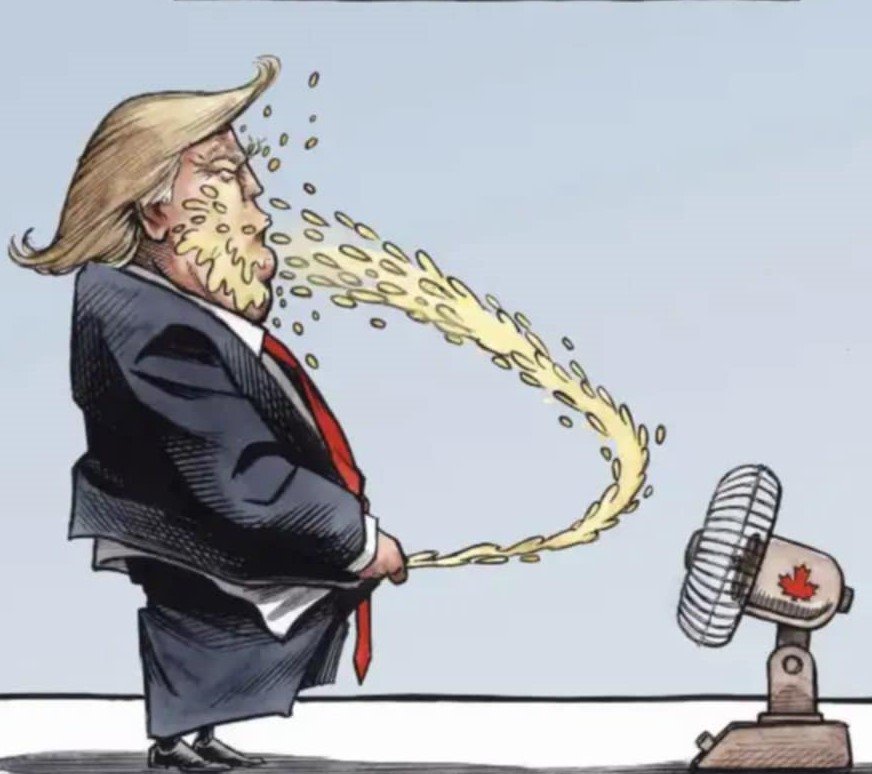Market Turmoil Unleashed by the Trump Tariff War
The financial markets have been rocked by escalating tensions between the U.S. and China, following former President Donald Trump’s imposition of new tariffs. The markets saw an immediate reaction, with stocks plunging and investors scrambling for safety. The situation took an even more dramatic turn when China responded with additional tariffs of 34% on key U.S. exports.
The uncertainty surrounding global trade policy often has ripple effects across financial markets, and this latest development is no exception. The question now is: how will these escalating economic tensions impact the crypto and stock markets moving forward?
The Immediate Impact on Traditional Markets
Stock markets responded sharply to the news, with major indices like the S&P 500 and Dow Jones experiencing steep declines. Investors, already on edge due to inflation concerns and rising interest rates, are now facing another wave of economic unpredictability.
Tariffs generally lead to higher costs for businesses, which can result in reduced corporate profits, layoffs, and economic slowdowns. As China and the U.S. continue their economic standoff, industries heavily reliant on international trade, such as manufacturing and technology, could experience significant volatility.
How Crypto Markets Are Reacting
While traditional stock markets are typically the first to react to geopolitical events, the crypto market has also seen heightened activity. Historically, Bitcoin and other cryptocurrencies have often been viewed as “safe-haven assets” in times of financial instability, similar to gold. However, their volatility complicates their role as a true hedge against market uncertainty.
Bitcoin initially saw a price surge as some investors sought alternatives to traditional assets. However, prolonged economic stress could lead to liquidity crunches, where investors sell off crypto holdings to cover losses in other markets. Altcoins and DeFi projects are likely to experience increased volatility, as risk-averse investors move capital into more stable assets.
Possible Scenarios for Crypto and Stock Markets
Increased Demand for Safe-Haven Assets
If economic uncertainty persists, there could be a shift towards assets perceived as stable. Gold, U.S. Treasuries, and potentially Bitcoin could see increased demand as investors seek to protect their wealth.
Liquidity Concerns and Market Sell-Offs
If stock markets continue to slide, investors may begin selling crypto holdings to cover traditional market losses. This could trigger a temporary downturn in crypto prices, especially for smaller-cap assets that rely on speculative investments.
Regulatory Reactions and Institutional Behavior
Governments and financial regulators may step in to stabilize the markets, potentially affecting both equities and crypto. Interest rate decisions, stimulus packages, or changes in regulatory policies on digital assets could introduce further market shifts.
Long-Term Implications for crypto
For long-term investors, market downturns often present buying opportunities. Historical patterns indicate that while economic turmoil can trigger short-term volatility, strong assets tend to recover over time. Bitcoin, in particular, has shown resilience after previous macroeconomic shocks, rebounding to new highs after corrections.
As traditional markets adjust to the evolving trade war, the crypto industry’s ability to weather the storm could shape perceptions of digital assets as a legitimate component of the global financial system. Increased adoption by institutional investors, greater regulatory clarity, and technological advancements in blockchain infrastructure could help the market mature and gain broader acceptance.
Stay Ahead with CryptoAnayzes
Navigating market volatility requires deep insights and timely analysis. At CryptoAnalyzes, we provide expert research, strategic guidance, and in-depth market breakdowns to help traders and investors stay ahead of the curve. Whether you’re looking for crypto investment strategies or real-time market updates, our platform delivers the insights you need to make informed decisions in an unpredictable economic landscape.



















